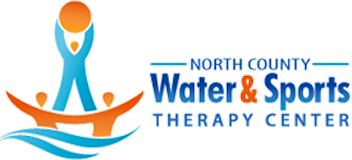Are You a New Year’s Resolution Newbie, Master or Flunkee?
Turning the page on the new year is a chance to wipe the slate clean—and to be better versions of ourselves. And when it comes to what we want to improve, goals that fall in the health and wellness arena top all other New Year’s resolutions. In fact, three of the top four resolutions in a 2018 YouGov poll were health-related: eat healthier (1), get more exercise (2) and focus on self-care, e.g., get more sleep (4). There are three types of people who choose a goal from the health and wellness category as a New Year’s resolution: the resolution newbie, the resolution master and the resolution flunkee. Let’s see which category you most identify with—and how focusing on the right strategy can help you get healthier in the new year.
Resolution Newbie. Maybe this is your first time making a commitment to your health and wellness. Good for you! Did a recent event like a health scare or loss of a loved one make you see the light? Or perhaps you want to be more active to enjoy activities with your grandchildren or to carry your own bag on the golf course. Whatever your goals are, taking that first step is a big one so you’ll want to be sure that you’re prepared for the challenge. Particularly when exercising for the first time or returning to an active lifestyle after a long hiatus, it’s important to have the proper information and tools to be successful. And that means tapping the healthcare resources available to you: Clinicians like nutritionists and physical therapists can make sure that your body is prepared to take on new challenges and work with you to a design a program that will help you achieve your goals.
Resolution Master. Perhaps you fall into a different camp: You vowed to get healthy in 2019 and you achieved it! For 2020, your resolution is to continue the work you’ve begun. After all, living a healthy lifestyle is a lifelong commitment; it’s not something you do for a while and then revert back to your former habits. As you prepare to embrace the new year, are there any small tweaks you can make to advance your goals? Maybe you’re thinking about training for and running a half marathon, but don’t know where to begin. A physical therapy evaluation is a great place to start—PTs are trained to assess your movement patterns and identify any limitations or weaknesses. Based on that information, the PT can design a personalized exercise program to help you safely and effectively prepare for the grueling half marathon course.
Resolution Flunkee. Let’s say your plan for 2020 is to get in better shape and improve your overall health (we support that resolution!), but this isn’t your first rodeo. Your 2019 resolution was pretty similar but it’s one year later, and you’re in the same place you were on New Year’s Eve 2018. What stood in your way—was it time? Affordable options? Access to healthy choices and activities? If any of these barriers sound familiar, then along with your resolution, you need an action plan. Without planning ahead, you’ll find yourself staring down the year 2021 with the same goal in mind. But let’s not focus only on the negative—what went right last year? Maybe you made sleep a priority, which in turn helped you to make better food choices at breakfast but by afternoon, you found yourself choosing to energize with a soda and candy bar when all you probably needed was an apple and a 15-minute walk. Take some time to think about the previous year—good and bad—and take with you what you need, and leave the rest behind. Afterall, you can’t plan where you’re going without understanding where you’ve been.
Which resolution type are you?
